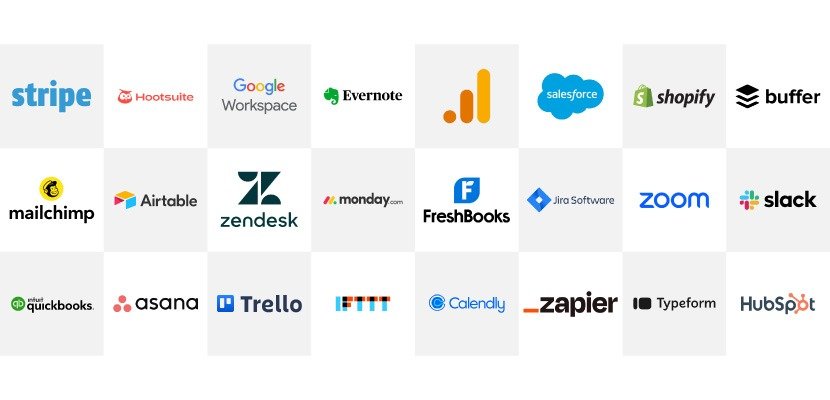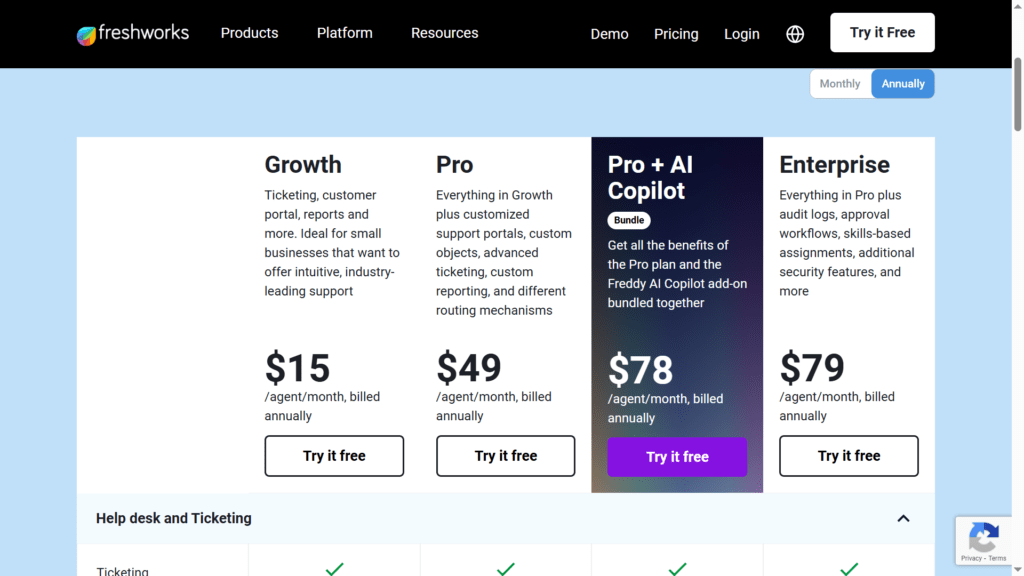Running a small business means juggling countless tasks every day. But what if you could automate the routine and focus on growing your business? That’s where business automation softwares come in. These powerful tools can handle everything from marketing to customer service, saving you time and reducing human error.
Imagine automating emails, managing finances, and streamlining customer support with just a few clicks. The right business automation softwares can help your business operate more efficiently and scale faster.
In this guide, we’ll explore the best business automation softwares for small businesses, helping you choose the perfect tools to boost productivity and growth. Ready to unlock the potential of automation? Let’s get started!

What Is Business Automation and How Does It Work?
Business automation refers to the use of technology to perform tasks that would traditionally require human input. This can include anything from automating emails and social media posts to managing customer support tickets and inventory systems.
Automation works by using software to set predefined rules or triggers that dictate when and how certain tasks should be executed. For instance, when a customer makes a purchase, the software can automatically send a confirmation email, update inventory records, and create a task for fulfillment. By removing the need for constant manual intervention, businesses can run more smoothly and efficiently.
The Key Benefits of Using Business Automation Softwares for Small Businesses
Adopting business automation softwares brings an array of advantages. First and foremost, automation reduces the time spent on repetitive, mundane tasks, freeing up valuable resources. Additionally, automation ensures consistency in operations, reducing the likelihood of human error.
For small businesses, the ability to scale becomes much more accessible. Automation tools can easily be adjusted to handle an increased workload without the need for additional hires. Moreover, these softwares help in improving customer satisfaction by providing faster response times and more personalized experiences.
Top Challenges Small Businesses Face Without Automation
Without the aid of automation, small businesses often encounter inefficiencies that can stunt their growth. For example, manually handling customer inquiries can lead to delays and missed opportunities. Likewise, time spent on administrative tasks detracts from the time available for strategic initiatives.
Additionally, businesses that don’t automate may struggle to maintain consistency in their operations. Errors, whether in inventory tracking, billing, or customer communications, can damage a company’s reputation and lead to lost business. These challenges can quickly overwhelm small teams, preventing them from achieving their full potential.
Choosing the Right Business Automation Software for Your Small Business
Selecting the right business automation software can be daunting given the sheer number of options available. It’s essential to identify a solution that aligns with your business needs, budget, and long-term goals. Start by defining the specific tasks you want to automate, whether it’s customer relationship management, inventory control, or marketing.
Key factors to consider include ease of integration with your existing systems, scalability, customer support, and the level of customization the software offers. Don’t forget to look for a tool that offers analytics features, so you can measure the effectiveness of your automation efforts and make informed decisions.
Must-Have Features to Look for in Business Automation Softwares
When evaluating business automation softwares, look for features that will provide the most value to your business. A robust reporting and analytics system is essential for tracking performance and uncovering insights. Additionally, seamless integration with other tools like email platforms, CRM systems, and social media accounts can simplify your processes.
Flexibility and customization options are also important. Every business has unique needs, so you’ll want software that allows for adaptability as your business grows. Finally, security features, such as data encryption and user access controls, are crucial for protecting sensitive business and customer information.
Best Business Automation Softwares for Marketing and Sales Teams
Marketing and sales teams can benefit greatly from automation tools designed to streamline campaigns and lead management. Software like HubSpot and ActiveCampaign allows businesses to automate email marketing, social media posts, and customer segmentation.
These tools help sales teams prioritize leads and track interactions, ensuring that no potential customer falls through the cracks. Additionally, reporting tools within these softwares provide insights into campaign performance, helping businesses adjust their strategies in real-time.
How Business Automation Softwares Can Streamline Your Customer Service
Customer service is a critical area where automation can make a significant impact. Tools like Zendesk and Freshdesk allow businesses to automate ticket management, FAQs, and follow-ups, reducing response times and improving customer satisfaction.

Automated chatbots can handle initial customer inquiries, providing instant responses and freeing up customer service representatives to tackle more complex issues. By offering 24/7 support, businesses can enhance their reputation and provide a seamless customer experience.

The Best Business Automation Softwares for Managing Finances
Managing finances can be time-consuming, especially for small businesses. Business automation softwares like QuickBooks and Xero simplify accounting, invoicing, and expense tracking by automatically recording transactions, generating reports, and even sending reminders for overdue invoices.
These tools can also integrate with your bank accounts, allowing for real-time tracking of cash flow and ensuring that your financial records are always up-to-date.
Automating Your Social Media with Business Automation Softwares
Social media management is essential for small businesses looking to build an online presence. Tools such as Buffer and Hootsuite allow businesses to schedule and automate social media posts across multiple platforms.
Automation can also assist with social media monitoring, ensuring that your team can respond to customer inquiries and comments quickly. By analyzing engagement metrics, these tools help businesses optimize their social media strategies and reach a wider audience.
How Business Automation Softwares Improve Team Collaboration and Communication
Effective team collaboration and communication are essential for small businesses. Automation tools like Slack and Microsoft Teams help improve internal communication by automating notifications, reminders, and task assignments.
Moreover, project management tools such as Asana and Trello enable teams to automate task tracking, allowing everyone to stay aligned on project progress and deadlines. This reduces confusion and ensures that work is completed on time.
Best Tools for Automating Your Email Marketing Campaigns
Email marketing remains one of the most effective ways to engage customers. Automation tools such as Mailchimp and ConvertKit allow businesses to schedule, personalize, and track email campaigns automatically.
These tools also enable businesses to segment their email lists and send targeted messages based on user behavior, increasing the chances of conversion and building stronger customer relationships.
How Business Automation Softwares Help Small Businesses Stay Competitive
In an increasingly competitive marketplace, small businesses must leverage every advantage to stay ahead. Business automation softwares enable small companies to streamline operations, reduce costs, and provide better customer experiences—all of which contribute to staying competitive.
By automating repetitive tasks, businesses can focus on strategy and innovation, giving them a leg up over competitors who are bogged down with manual processes.
The Best Business Automation Softwares for Project and Task Management
Project and task management is critical for small businesses trying to juggle multiple projects at once. Tools like Monday.com and Wrike help automate task assignments, deadlines, and project tracking, ensuring that nothing slips through the cracks.
These platforms also provide a centralized location for teams to collaborate, share files, and communicate about project updates, making it easier to stay on track and meet deadlines.
How to Integrate Business Automation Softwares with Your Existing Tools
Successful business automation requires seamless integration with existing tools and systems. When selecting software, look for solutions that can easily sync with your CRM, accounting software, and communication tools.
Most automation platforms offer integrations with popular software like Salesforce, Shopify, and Google Workspace, enabling you to centralize data and improve workflow efficiency. Integration reduces manual data entry and eliminates the risk of errors, making your business operations run more smoothly.
Common Mistakes to Avoid When Choosing Business Automation Softwares
Choosing the wrong business automation software can lead to wasted time and resources. Common mistakes include selecting tools that are not scalable, failing to assess integration capabilities, and ignoring the learning curve for your team.
Additionally, it’s essential to thoroughly vet the software’s customer support and documentation, ensuring that help is available if needed. Not considering the long-term needs of your business can lead to outgrowing your chosen solution too quickly.
How to Maximize the ROI of Your Business Automation Software
Maximizing the return on investment (ROI) from business automation software requires strategic implementation. Start by automating the tasks that will save you the most time and money. Measure the impact of your automation efforts by tracking key performance indicators (KPIs) like productivity, customer satisfaction, and cost savings.
Continuous optimization is also important. Regularly review your automation systems and adjust them as needed to ensure they are working at their full potential.
Real-Life Examples of Small Businesses Successfully Using Automation Softwares
Many small businesses have already seen the benefits of automation. For example, a local e-commerce store might use business automation software to handle inventory management, order fulfillment, and customer communication—all from a single platform.
Another example could be a boutique consulting firm using automated scheduling software to book meetings and send reminders, saving time and improving customer experience.
The Future of Business Automation Softwares: Trends to Watch
The future of business automation looks bright, with advancements in artificial intelligence and machine learning poised to take automation to the next level. Businesses will increasingly be able to rely on predictive analytics and autonomous decision-making to improve operations.
In addition, automation will continue to evolve to handle more complex tasks, such as personalizing customer interactions and adapting to changing market conditions in real time.
Is It Time for Your Small Business to Embrace Automation?
If you haven’t already embraced business automation software, now may be the perfect time to start. These tools can help your small business operate more efficiently, save time, and remain competitive. By choosing the right solution and implementing it thoughtfully, your business can unlock new levels of productivity and growth.
Interested to learn about which companies are already booming with business software? Read this blog for more.
Want to explore more options for Automation in the world of AI? Learn about AI SaaS today.




